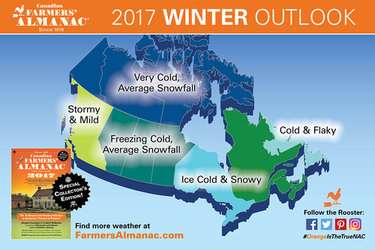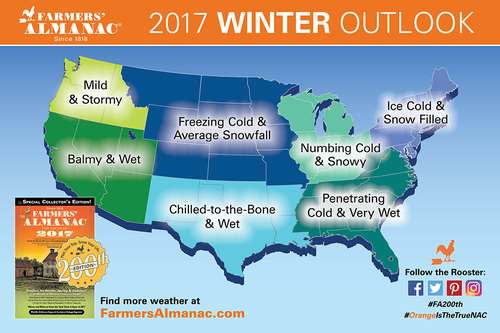Producers can expect Old Man Winter to return
By Diego Flammini
Assistant Editor, North American Content
Farms.com
The Farmers’ Almanac released its forecast winter 2016-17 for Canada and the United States, and the season can be summed up in one word - cold.
“Exceptionally cold-if not downright frigid-winter weather will predominate over parts of the Rockies, Prairies, Great Lakes, Ontario, Quebec and the Maritime Provinces,” reads an outlook on the almanac’s website. “Newfoundland and Labrador are expected to be cold and flaky. In contrast, milder-than-normal temperatures will prevail over British Columbia.”
The forecasters at the Almanac have circled February as “unforgettable.”
“You should note that between February 16-19, a small, but intense storm will develop near the Mid-Atlantic Coast of the U.S. and deliver a heavy snowstorm with strong winds to parts of Nova Scotia with up to 30cm accumulations,” forecasters say.

February could also have an extreme cold spell over the “eastern three-quarters of Canada” during the middle of February, with some places seeing temperatures as low as -40°C (-40°F).
When it comes to the U.S. forecast, cold remains the prevalent theme.
“While winter officially starts on December 21, 2016, the Farmers’ Almanac predictions point to some snow and cold conditions in mid-November in the Northeast, Great Lakes, and Midwest,” an American outlook says.
Like the Canadian forecast, February in the United States could prove to be frigid.
“This is the month you want to make sure your heat works, your long johns are washed and your slippers are nearby.”
